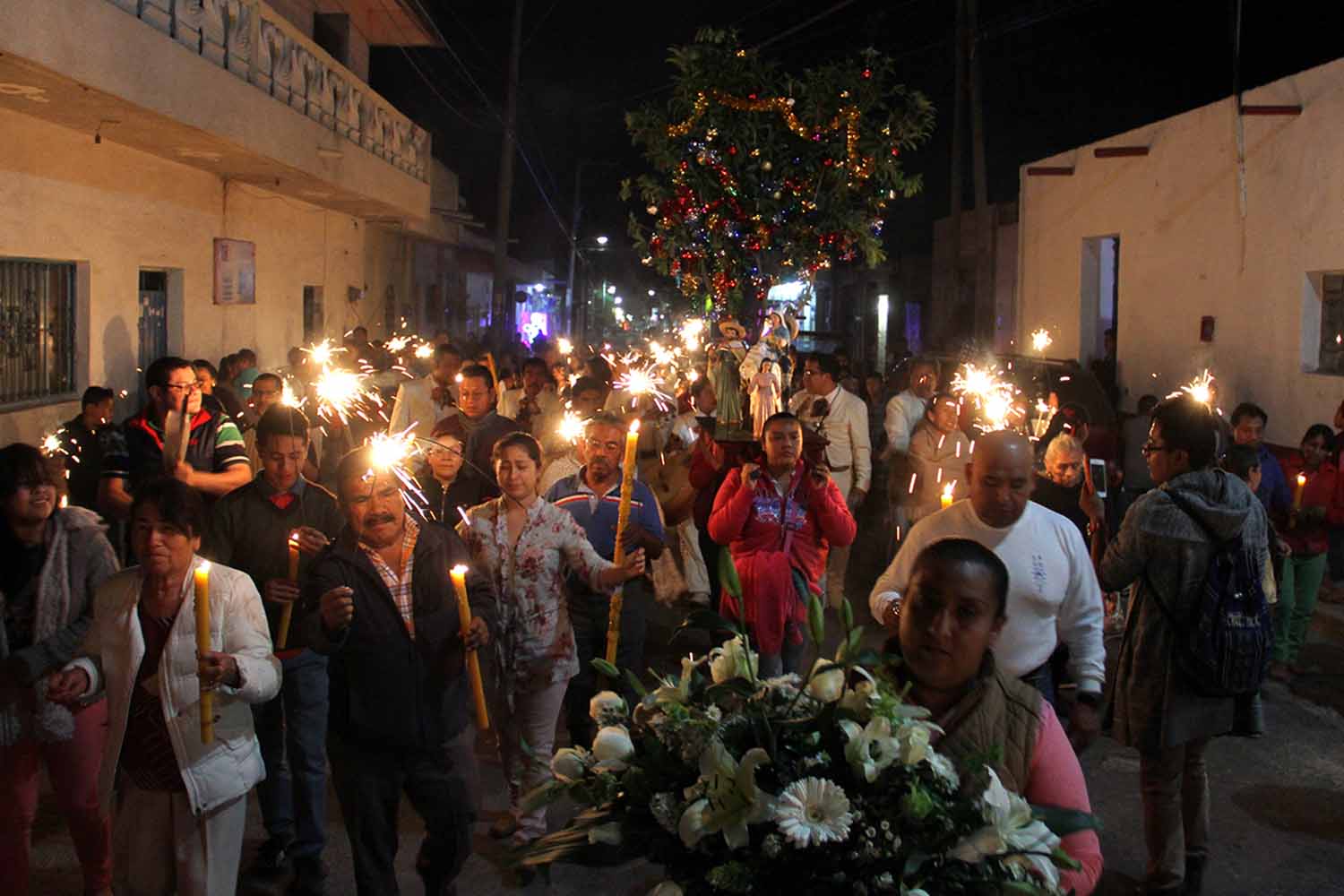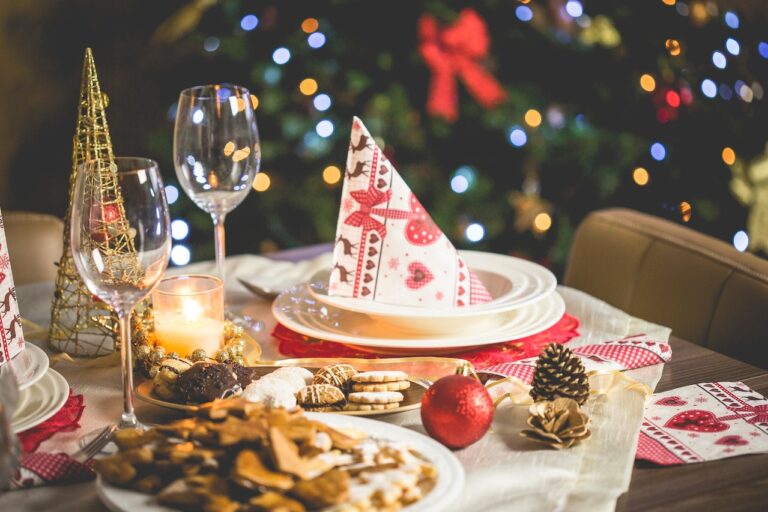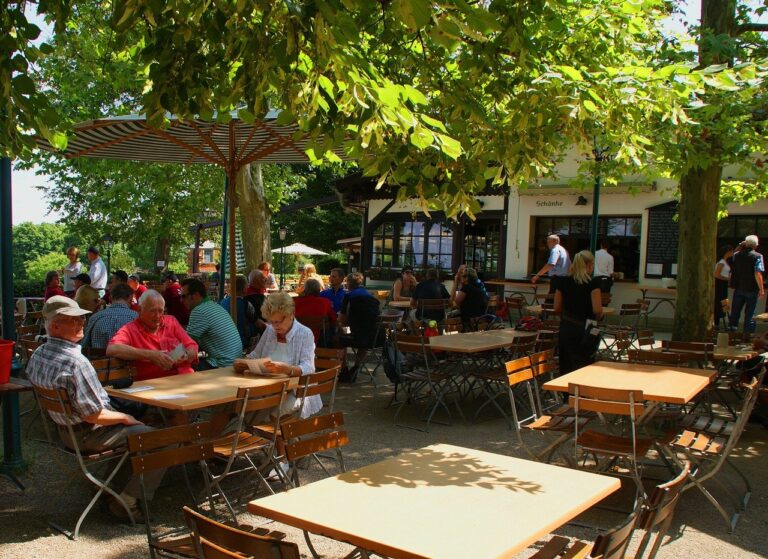Christmas Eve Around the World (or in Six Different Countries)
Sure, we all know the Christmas Eve traditions here in the good ‘ole U.S. of A, but have you ever wondered what Christians in other countries typically do on the night before Christmas? If so, this post is for you.
Mexico
While the Christmas season in Mexico runs a bit longer than ours (from December 12 to January 6), their Christmas Eve traditions are similar. Many Mexicans place a great deal of importance on the Nativity as scenes are not only placed at churches but in individual homes as well. Throughout December, many Mexicans participate in or watch the numerous Las Posadas (parades/parties) that take place throughout the country with the last one occurring on Christmas Eve. After the last Las Posadas, many Mexicans head to a late-night Mass known as the Mass of the Rooster which comes from the tradition that the birth of Christ was heralded by the crowing of a rooster. They then conclude their night with a midnight feast that might include bacalao, revoltijo de romerito, turkey and ham. After dinner, the children play with sparklers, known as Bethlehem Lights and the adults enjoy a few glasses of cider or ponche. Many Mexicans then spend Christmas Day recovering from the previous night’s festivities.
Brazil
Despite celebrating Christmas in the summer, many Brazilian traditions resemble those of Europe and North America, such as putting up Christmas trees, sending cards and gift exchanges. Brazilians take a great deal of pride in their Christmas light displays and some towns and cities hold contests, announcing the winners on Christmas Eve. Like Mexico, Brazilians celebrate more on Christmas Eve rather than Christmas Day, including the Mass of the Rooster with family dinners and revelry after. However, their Christmas Eve dinners include fried cod, a variety of fruit, roast turkey with farofa stuffing and rabanada for dessert which is similar to our French toast.
Czech Republic and Slovakia
Again, most Czechs and Slovaks celebrate the birth of Christ on Christmas Eve rather than Christmas Day. The rough translation of Christmas Eve is “Generous Day” and gifts are exchanged that evening. Children’s gifts are usually placed under the tree just prior to or during the Christmas Eve dinner. Once the children hear the ringing of the Christmas bell (usually a tree ornament) they know that little Jesus has delivered the presents, which usually occurs just as dinner ends. And that dinner might consist of lentil soup, potato salad, gnocchi, roasted carp and traditional Christmas sweets for dessert. Another Christmas Eve tradition is divining predictions about the future in cut apples, thrown shoes and molten lead.
Jamaica
Jamaicans enjoy reggae Christmas carols and stringing pepper lights well before Christmas Eve. Their Christmas celebrations, known as Junkanoo or John Canoe (not sure who John Canoe is or was) through Christmas Eve. These celebrations involve parades, masquerade costumes (complete with masks), and street dancing. Many Jamaicans attend Christmas Eve religious services and then hit the Christmas Eve Grand Market where they may shop to the wee hours of Christmas morning. A traditional Jamaican Christmas dinner may include fried plantains, breadfruit, curried goat, oxtail, or chicken with a rum fruitcake for dessert.
Poland
The Polish place a great deal of importance on the Christmas Eve dinner, known as Wigilia or “The Vigil.” This dinner is preceded by children watching for the first star in the sky, in recognition of the Star of Bethlehem. Once the first star, or Gwiazdka, is sighted, the dinner commences. At the dinner table, pieces of hay are strewn under the tablecloth to remind attendees of the manger in which Christ was born. Some dinner hosts place money under each place setting as a wish for prosperity in the year soon to arrive. Many tables in Poland leave an empty place in case one less fortunate wanders into their home or if baby Jesus, an angel or the Holy Spirit should arrive to share the meal. A traditional Wigilia consists of twelve dishes (to represent the twelve apostles) and they could consist of ravioli, pierogis, fried carp, pickled herring, beetroot soup, and/or cabbage leaves wrapped around pork or beef. After dinner, the Wise Men arrive to deliver presents to the children.
While Christmas Eve and Christmas Day traditions may vary among Christians and countries they all seem to have one commonality; that is celebrating the birth of Christ in the presence of family and friends and setting aside our differences, if only for a day or two.



